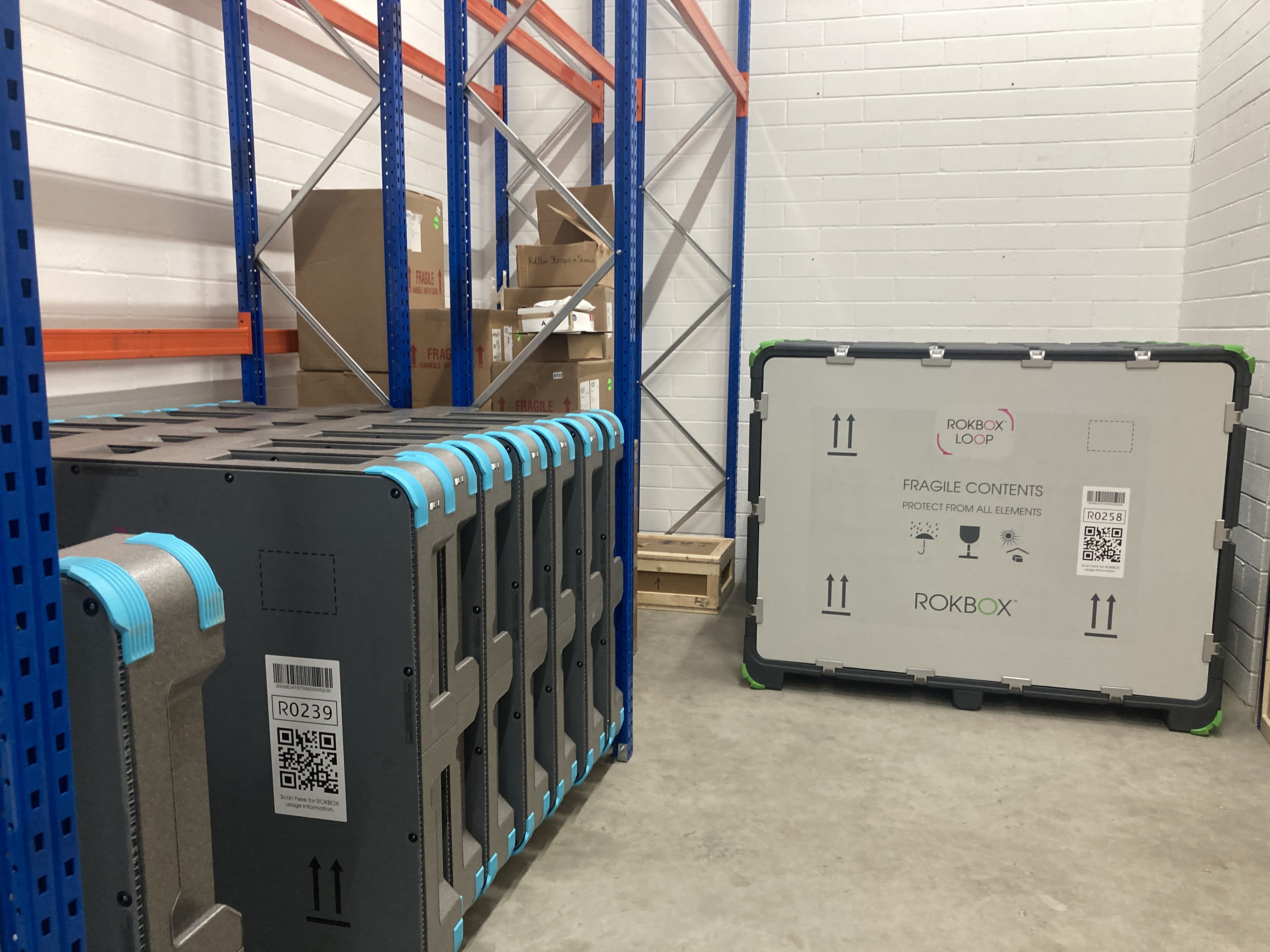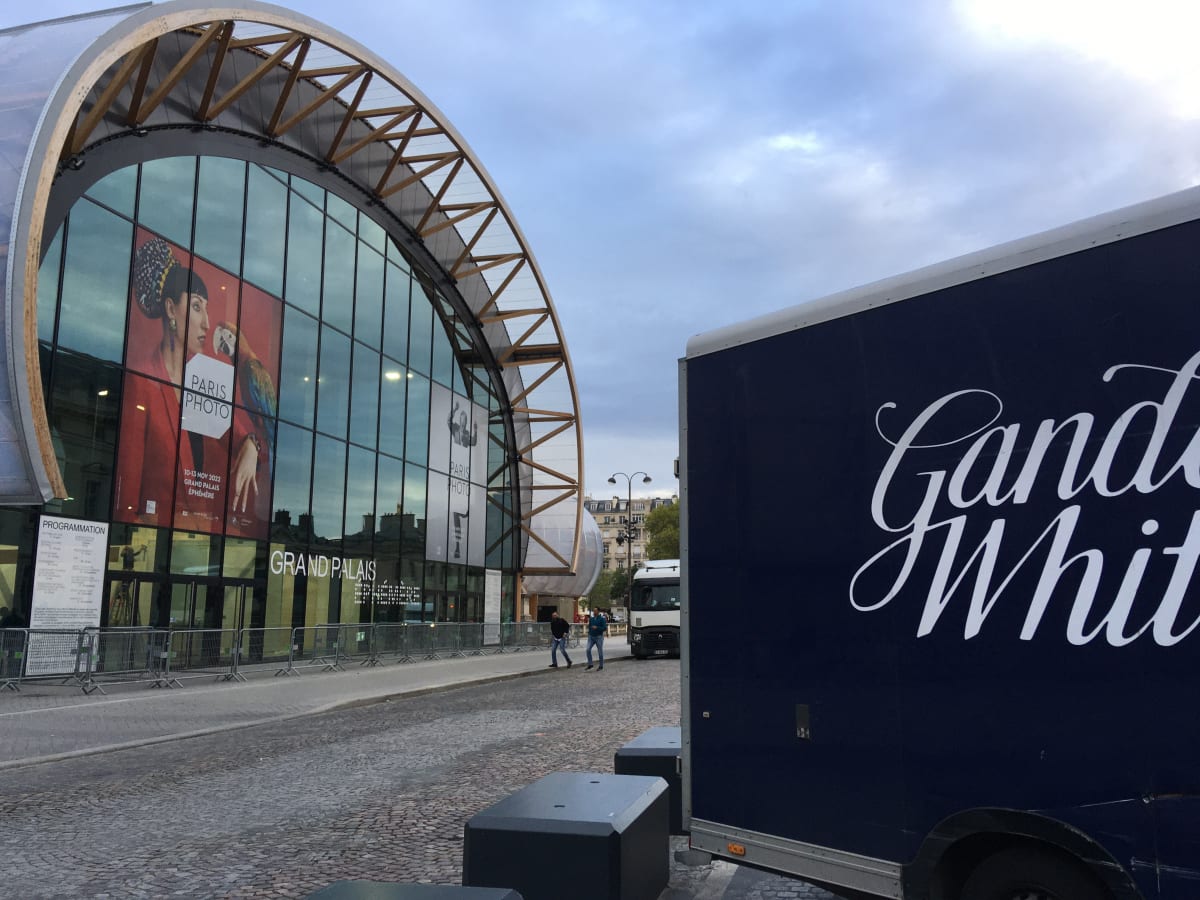Member Case Study: Gander & White
For almost a century the fine art shipping company Gander & White has worked with collectors, museums, auction houses, and galleries to transport artworks across the world. Now, ninety years on, the shipper is turning its attention to its role in the climate crisis.
Along with partners across the industry, the team at Gander & White are trying to understand how to reduce the environmental impact of shipping, which plays such a fundamental role in the sector.
“If you can’t move collections around, there’s no culture,” says Alexander Bradford, Global Business Development & Sustainability Manager at Gander & White.
But, as GCC’s own Sustainable Shipping Campaign has shown, transportation of artworks, goods and materials, particularly via air freight, is a major source of greenhouse gas emissions in the art sector.
At the same time, the packaging used in the process often relies on large volumes of single-use plastic and results in a significant amount of waste.
Bradford explains that, in 2021, Gander & White began to collect data on their emissions as part of a shift towards making sustainability “integral” to their ways of working.
The data helped them to understand where they were having the biggest impacts. The team identified emissions from trucks, energy used to maintain climate and temperature controls in their facilities, packing materials, and international travel as some of their main sources of emissions.
“The biggest part of our carbon footprint comes from our electricity and our diesel,” says Bradford.
To get started on reducing these impacts, Gander & White joined GCC and worked with environmental consultants Planet Mark to begin to measure their emissions.
Gander & White are Active Members of GCC and became the first and only asset-based fine art shipper to achieve this status in 2023.
This year the shipper aims to use all of the data they’ve gathered to set specific reduction goals, and will be measuring Scope 3 for the first time.
“We’d like to be able to position ourselves slightly ahead of climate targets,” says Bradford.
Over the past three years the team has already begun to make changes to reduce its footprint.
The shipper’s European facilities have now gathered three years’ worth of data on carbon emissions, and the US facilities submitted data for the first time in 2023.
A Green Team, made up of staff from the London and Paris facilities and representatives from each of the US offices, is up and running, and has been focusing on issues including packaging, energy use, and reducing vehicle emissions.
In 2022 the London team took delivery of its first fully electric vehicle, which will be used for deliveries across the city. The latest two HGVs to be added to the shippers’ fleet have also been equipped with solar panels to power the crew cabins.
When the team built their latest facility in London, they included solar panels and high-spec climate and humidity control as part of the build. “This saves a huge amount of energy,” says Bradford.
Another key strand of Gander & White’s environmental work is their collaboration with Rokbox, a reusable crate company that reduces waste, pollutants and carbon emissions by up to 90%. Last year Gander & White collaborated with Rokbox and Haas & Co on the launch of ROKBOX LOOP, a reusable art crate rental service.
“The idea is that rather than buying reusable crates, you will have them constantly in a loop,” says Bradford.

Image: Gander & White / ROKBOX LOOP
Reducing the creation and use of brand-new, bespoke crates for each shipment is a significant change for the shipper, but is in line with their new focus on sustainability. “We feel it is the right thing to do,” says Bradford.
Bradford’s approach is ‘doing what we can, when we can’, even when current industry norms make it difficult to adopt environmentally responsible practices. “In an industry where it can be hard at times to make change, this is something where we can make concrete movements and efforts to show that we’re doing this,” he says.
The team have also begun to address waste, and over 75% of packing materials used are now biodegradable or combustible and are made from recycled materials. Other action areas include making clients aware of sea freight options and reviewing staff travel policies.
There are still challenges ahead. As GCC’s recent survey showed, there are plenty of areas where shippers are yet to consistently make changes, including adding CO2 data to invoices and promoting and enabling alternatives to air freight.
For Gander & White, Bradford says that main challenges include promoting ocean freight more widely, optimising energy efficiency, and reducing the impact of HGVs.
The shipper operates in seven cities—London, Paris, New York, Los Angeles, Miami, Palm Beach, and San Francisco—and keeping on top of different regulations and speed of change can be tricky.
Despite the challenges ahead, though, Bradford is optimistic that the industry can still make significant progress in time to meet the 2030 targets. His experience over the past few years has shown how quickly advancements in technologies such as HGV batteries can be rolled out.
“It’s really encouraging and exciting—and surprising—to see the scientific advances that are happening, especially with diesel and HGVs,” he says.
Bradford says that he has learned a lot over the past three years and encourages other shippers who are earlier in the process to stay open.
“I’m still learning, there’s so much I still don’t know,” he says. “Be open minded and prepared to learn, and look at it as a process, and a journey. In a way we’re all in this together—we have to do this for the future of all of us.”
-
Our Member Case Study series highlights stories from across our sector that show the climate action that’s taking place every day. We’d like to thank our featured members for generously sharing their successes, their challenges, and their plans for the future.
Are you a GCC member and want to share your story? Get in touch! We’d love to hear from you.

